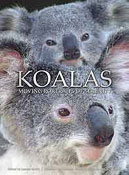Climate change updates
A new study on climate change adds the dimensions of health and economics to the usual ecological concerns.
"We found that impacts of climate change are likely to lead to ramifications that overlap in several areas including our health, our economy and the natural systems on which we depend," wrote Paul Epstein, the study's lead author and Associate Director of the Center for Health and the Global Environment at Harvard Medical School. "A comparable event would be the aftermath of flooding, contamination and homelessness witnessed after Hurricane Katrina hit the US Gulf coast in August. Analysis of the potential ripple effects stemming from an unstable climate shows the need for more sustainable practices to safeguard and insure a healthy future."
The report, titled Climate Change Futures, was sponsored by the United Nations Development Programme and European reinsurance giant Swiss Re, and shows the current effects of climate change on infectious diseases, such as West Nile virus, and extreme weather, such as droughts and floods.
At a press conference in New York City on November 1, however, Epstein expressed optimism.
"There are great opportunities here, " he said. "The clean energy transition that we're embarking on is where Wall Street has to move. It's for all of our bottom lines to invest in ecological reconstruction. Conservation and clean energy will build a secure future, and will drive the engine of growth for the 21st century.”
An article published this week in the Journal of Climate projects a temperature increase of 14.5 degrees "if humans continue to use fossil fuels in a business-as-usual manner for the next few centuries." The temperature at the poles would rise an alarming 68 degrees.
"The temperature estimate is actually conservative because the model didn't take into consideration changing land use such as deforestation and build out of cities into outlying wilderness areas," said lead author Govindasamy Bala of the Lawrence Livermore National Laboratory in California.
"It's a cautionary tale," said Gerald A. Meehl, of the National Center for Atmospheric Research in Boulder, Colo. to the New York Times, who has put together a package of resources on the subject (requires registration). "The message is not to give up because the changes appear overwhelming, but instead the message should be the longer we wait to do something, the worse the consequences."
Researchers at the University of California, Santa Cruz say the range of California's oak woodlands "will shift northward and could shrink to nearly half their current size" by the end of the century due to climate warming trends.
Lisa Sloan, coauthor of the study, said the results show the importance of looking at regional variations.
"More intense hurricanes are the issue on the Gulf Coast, while melting sea ice is important in the Arctic," she said. "In California, the strongest effects of climate change are in the mountains, creating concern for our water supply and for the natural ecosystems that attract so many visitors."
The study will be published in the November 8 issue of the journal of the National Academy of Science.
Gregory Yanick - New York
Greener Magazine Staff Writer
"We found that impacts of climate change are likely to lead to ramifications that overlap in several areas including our health, our economy and the natural systems on which we depend," wrote Paul Epstein, the study's lead author and Associate Director of the Center for Health and the Global Environment at Harvard Medical School. "A comparable event would be the aftermath of flooding, contamination and homelessness witnessed after Hurricane Katrina hit the US Gulf coast in August. Analysis of the potential ripple effects stemming from an unstable climate shows the need for more sustainable practices to safeguard and insure a healthy future."
The report, titled Climate Change Futures, was sponsored by the United Nations Development Programme and European reinsurance giant Swiss Re, and shows the current effects of climate change on infectious diseases, such as West Nile virus, and extreme weather, such as droughts and floods.
At a press conference in New York City on November 1, however, Epstein expressed optimism.
"There are great opportunities here, " he said. "The clean energy transition that we're embarking on is where Wall Street has to move. It's for all of our bottom lines to invest in ecological reconstruction. Conservation and clean energy will build a secure future, and will drive the engine of growth for the 21st century.”
An article published this week in the Journal of Climate projects a temperature increase of 14.5 degrees "if humans continue to use fossil fuels in a business-as-usual manner for the next few centuries." The temperature at the poles would rise an alarming 68 degrees.
"The temperature estimate is actually conservative because the model didn't take into consideration changing land use such as deforestation and build out of cities into outlying wilderness areas," said lead author Govindasamy Bala of the Lawrence Livermore National Laboratory in California.
"It's a cautionary tale," said Gerald A. Meehl, of the National Center for Atmospheric Research in Boulder, Colo. to the New York Times, who has put together a package of resources on the subject (requires registration). "The message is not to give up because the changes appear overwhelming, but instead the message should be the longer we wait to do something, the worse the consequences."
Researchers at the University of California, Santa Cruz say the range of California's oak woodlands "will shift northward and could shrink to nearly half their current size" by the end of the century due to climate warming trends.
Lisa Sloan, coauthor of the study, said the results show the importance of looking at regional variations.
"More intense hurricanes are the issue on the Gulf Coast, while melting sea ice is important in the Arctic," she said. "In California, the strongest effects of climate change are in the mountains, creating concern for our water supply and for the natural ecosystems that attract so many visitors."
The study will be published in the November 8 issue of the journal of the National Academy of Science.
Gregory Yanick - New York
Greener Magazine Staff Writer



2:18 PM









<< Home